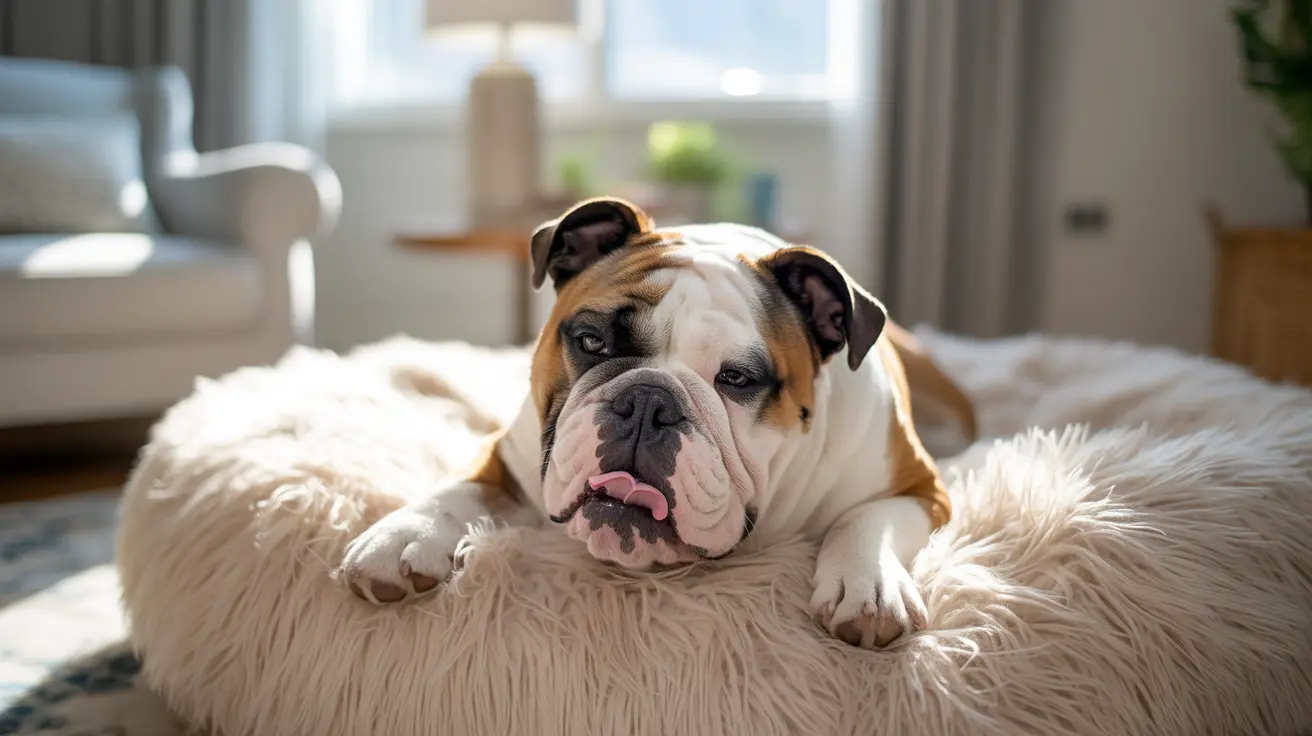Introduction
Dog snoring is a common occurrence that many pet owners encounter, ranging from occasional gentle sounds to persistent, loud breathing during sleep. While some dogs naturally snore due to their breed characteristics or sleeping positions, others may develop snoring as a symptom of underlying health issues that require attention.
Understanding why dogs snore and recognizing when it might signal a problem is crucial for maintaining your pet's health and ensuring they get quality rest. Let's explore the various causes of dog snoring, potential health implications, and effective solutions to help your furry friend breathe easier.
Common Causes of Dog Snoring
Anatomical Factors
Many dogs snore due to their physical structure, particularly brachycephalic (flat-faced) breeds like Bulldogs, Pugs, and Boston Terriers. These breeds often have shortened nasal passages, elongated soft palates, and other anatomical features that can restrict airflow during sleep.
Medical Conditions
Several health issues can lead to snoring in dogs:
- Respiratory infections and allergies
- Nasal tumors or polyps
- Dental problems and infections
- Hypothyroidism
- Sleep apnea
Environmental and Lifestyle Factors
Sometimes, external factors contribute to dog snoring:
- Obesity and excess weight
- Exposure to irritants like smoke or dust
- Dry air in the sleeping environment
- Sleep position preferences
Health Implications of Dog Snoring
While occasional snoring might be harmless, chronic or sudden-onset snoring can indicate serious health concerns. Dogs with persistent snoring may experience:
- Disrupted sleep patterns
- Reduced oxygen intake
- Increased strain on respiratory systems
- Secondary health complications
Prevention and Management Strategies
Weight Management
Maintaining a healthy weight is crucial for preventing snoring. Excess weight can put pressure on the airways and exacerbate breathing difficulties during sleep. Regular exercise and a balanced diet can help manage this risk factor.
Environmental Modifications
Simple changes to your dog's environment can help reduce snoring:
- Using a humidifier to add moisture to the air
- Keeping sleeping areas clean and dust-free
- Providing an appropriate bed that supports proper sleeping positions
Medical Interventions
Some cases may require veterinary intervention:
- Surgical correction of anatomical issues
- Treatment for underlying conditions
- Medication for allergies or infections
- Regular dental care and maintenance
Frequently Asked Questions
What are the most common causes of snoring in dogs and how can I identify them?
The most common causes include anatomical features (especially in flat-faced breeds), obesity, allergies, and respiratory infections. You can identify potential causes by noting when the snoring occurs, its intensity, and any accompanying symptoms like coughing or nasal discharge.
When should I be concerned about my dog's snoring and seek veterinary care?
Seek veterinary attention if your dog's snoring is sudden, severe, or accompanied by other symptoms such as difficulty breathing, coughing, lethargy, or changes in eating habits. Immediate care is needed if you notice blue-tinted gums or labored breathing.
How can I help reduce or stop my dog's snoring at home?
You can help by maintaining a healthy weight, using a humidifier, keeping the environment clean, and encouraging side-sleeping positions. However, always consult with your veterinarian before attempting any interventions.
Are certain dog breeds more prone to snoring and why?
Yes, brachycephalic breeds like Bulldogs, Pugs, and Boston Terriers are more prone to snoring due to their shortened facial structure and compressed airways. These breeds often have anatomical features that make them more susceptible to breathing difficulties.
Can my dog's sleep position affect their snoring, and how can I adjust it?
Yes, dogs who sleep on their backs are more likely to snore as this position can cause the tongue and soft tissues to block the airway. Encouraging side-sleeping through bed design or gentle repositioning can help reduce snoring.
Conclusion
While dog snoring can be normal in some cases, it's important to monitor any changes in your pet's breathing patterns and seek veterinary care when necessary. By understanding the causes and implementing appropriate management strategies, you can help ensure your dog maintains healthy sleep patterns and optimal respiratory function.






